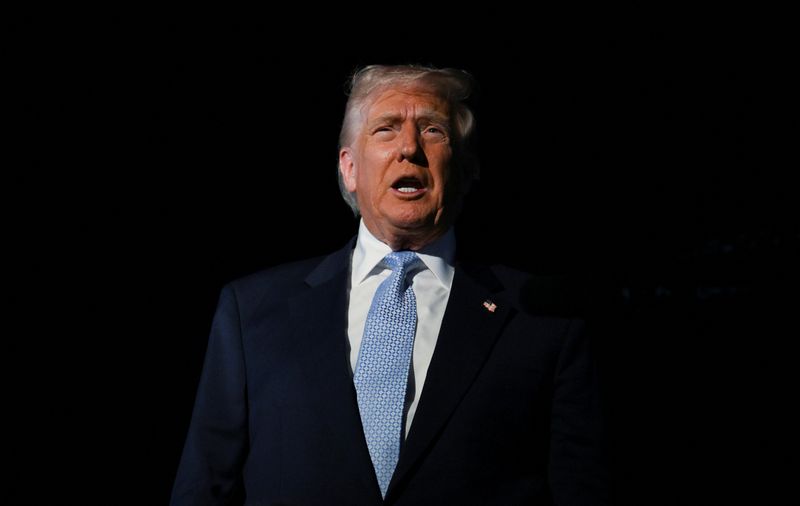Trump to talk up economy in meeting with McDonald’s owners, operators
By Andrea Shalal and Steve Holland
WASHINGTON (Reuters) -Under mounting pressure from Americans worried about inflation, U.S. President Donald Trump will meet on Monday with owners, operators and suppliers of fast-food chain McDonald’s to tout his administration’s efforts to drive down living costs.
Trump has argued repeatedly that his administration’s tax cuts and steps to re-shore domestic manufacturing will help boost Americans’ real income and spur growth. But economic worries played a big role in Democratic victories in key state and local elections earlier this month, and Trump’s approval ratings have continued to drop.
On Monday, the U.S. president will appeal directly to the nation’s largest fast-food chain, whose CEO Chris Kempczinski this month warned that low-income consumers were having to absorb “some significant inflation.” Trump is due to speak to the group’s bipartisan “Impact Summit” in Washington.
Trump, who has long insisted that his sweeping tariffs are not fueling price increases, reversed course on Friday when he announced the elimination of tariffs on more than 200 imported food items, including coffee and bananas.
The president has also floated the idea of a $2,000 tariff-funded check for lower- and middle-income Americans, although such a measure would require congressional approval. He also suggested 50-year mortgages as a way to make houses more affordable, although homeowners would pay more in interest.
Trump, who made headlines when he served french fries at a Philadelphia-area McDonald’s during the 2024 election campaign, insists that inflation is far lower now than during former Democratic President Joe Biden’s term, when consumer prices spiked up to around 9%. But Americans remain skeptical.
The Economist’s longtime “Big Mac” index, which measures the cost of the famous double-decker hamburger across numerous countries, shows that a Big Mac cost on average $6.01 as of July, up from $5.69 a year ago. Three years ago, the cost was $5.15. The Economist uses a McDonald’s-supplied price for its index.
A pound of ground chuck beef cost consumers about $6.33 in September, up 13.5% from a year earlier, according to the Bureau of Labor Statistics.
The most commonly cited measure of U.S. inflation, the Consumer Price Index, was 3% higher year over year in September, its highest since January. More than half of the hundreds of line items tracked in the report had annual increases that exceeded the 3% overall inflation rate.



Leave a Comment
Your email address will not be published. Required fields are marked *